-
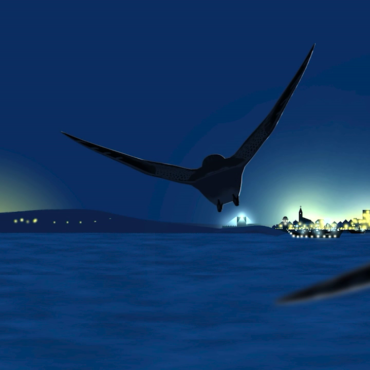
Turn out THE LIGHT FOR WORLD MIGRATORY BIRD DAY (WMDB) 2022
Light pollution from artificial lights at night adversely affects migratory birds and other animals. The good news is that we can do something about it with targeted measures. The Wadden Sea Flyway Initiative and the Trilateral Dark Sky Initiative have joined forces in creating an animation for World Migratory Bird Day (WMBD) 2022. This animation and more information can now be found on our website.
Read more -
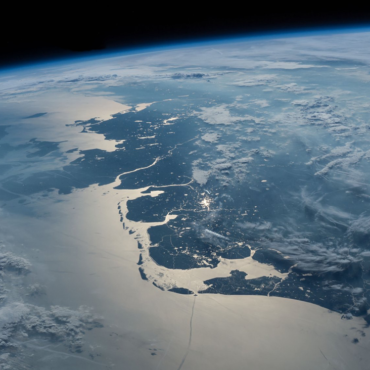
15th International Scientific Wadden Sea Symposium
There has been a trilateral symposium to stress the importance of science for the management of the Wadden Sea World Heritage in the context of climate change. The report is now available on our website.
Read more -
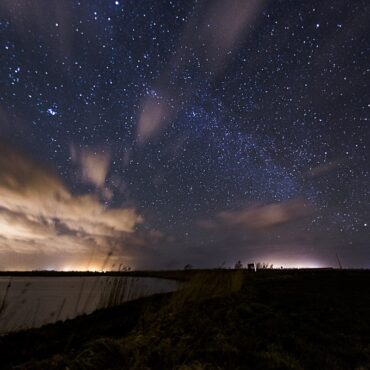
Artificial Light at Night and the Wadden Sea World Heritage
There is increasing evidence that artificial light at night alters behaviour, space usage, migration, physiology, development and reproduction in almost all groups of organisms, including plants and micro-organisms. PRW, in the context of the Trilateral Dark Sky initiative, has commissioned a review of this in cooperation with the Common Wadden Sea Secretariat and the Partnership hub.
Read more
Recent reports
Pillars and subjects
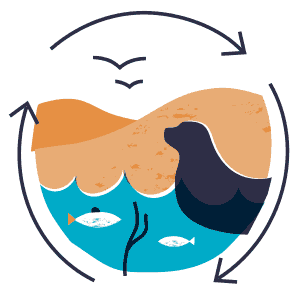
Pillar 1
Nature improvement towards a resilient ecosystem
This subject concerns the physical (abiotic) part of the ecosystem. The Wadden Sea is constantly changing and adapting to changes caused by climate and human intervention from the past and present.
-
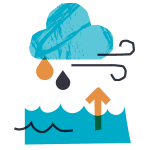
1. Climate change
In the long term, climate change will play an even greater role in terms of ecology, water safety and shared human use, both in the Wadden Sea itself and in the surrounding region. As a first step, we will catalogue the most likely scenarios and key points for attention before scheduling the necessary measures, in consultation with all parties involved.
Read more -
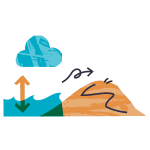
2. Natural dynamic
Natural dynamic processes in the Wadden Sea should be stimulated, restored or strengthened as much as possible. We can achieve this by removing or reducing erected barriers or influences.
Read more -
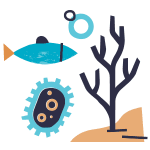
3. Underwater nature
Broadly speaking, the existing management and policy with regard to this area is aimed at visible and appreciated natural values. The protection of life under water is still catching up.
Read more -
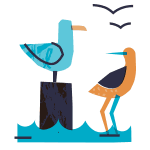
4. Birds
For birds, the Wadden Sea is an important link in the habitat that stretches from the wintering grounds along Africa’s west coast to the breeding areas in Siberia.
The PRW activities/projects proposed by the commissioning parties consist of flyway monitoring and achieving the safest and most resilient Wadden Sea for birds.
Read more
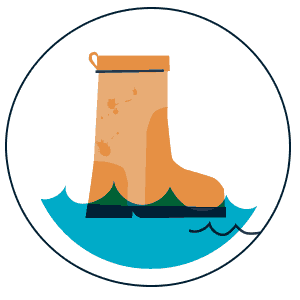
Pillar 2
Transitions to sustainable (economic) shared use
The activities/projects in this pillar have been put forward by the commissioning parties and contribute to the transitions towards sustainable (economic) co-use. Within this pillar, the program works on the following themes:
-
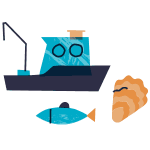
5. Fishing
As the linking pin between parties, the PRW will continue to serve as the independent secretariat for the various fishing agreements. It will continue to monitor the pursuit of the agreed objectives and drive innovation where necessary. To achieve fully sustainable shared use (including economic shared use), we need to move a step further.
Read more -
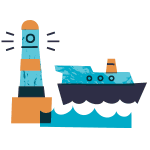
6. Accessibility and mobility
Given the morphological developments in the Wadden Sea, it is relevant to examine whether making the current transport system more sustainable will lead to sustainable and reliable access to the Wadden Islands and the Wadden Sea ports in the long term as well.
Read more -
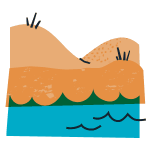
7. Edges of the Wadden
Our ambition is to restore the former ecological, social and economic connections between the Wadden Sea coast and the islands and to establish new ones, while striving for the maximum possible synergy between nature, water safety, agriculture and visitor experience and leaving room to experiment with pilot projects and ideas.
Read more -
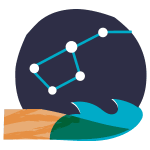
8. Strengthening core values world heritage
In addition to protection and development, a World Heritage Site requires a strengthening of core values with respect to both nature and the economy. Commissioning parties, other interest groups and users of the Wadden Sea region all want to contribute to making the region worthy of its World Heritage Site designation in everything they do. To this end, they are looking towards the PRW for guidance.
Read more
programme Roles
PRW (the Programme towards a Rich Wadden Sea) helps government bodies, civil-society organisations, residents and users to gain clear insight into our 2050 vision for the Wadden Sea. In order to do this, PRW plays four roles – Challenge, Encourage, Develop and Connect – with a focus on boosting ecological value and sustainable shared use.
Vision 2050: a bright future for the Wadden Sea region
PRW (the Programme towards a Rich Wadden Sea) is working to ensure resilient ecology and a sustainable economy in the Wadden Sea region. By focusing on the region and working alongside the various parties concerned, PRW’s mission is to instigate transitions based on four key roles: Challenge, Encourage, Develop and Connect. Together with all parties involved, we are striving towards a healthy Wadden Sea for people and the ecosystem!
